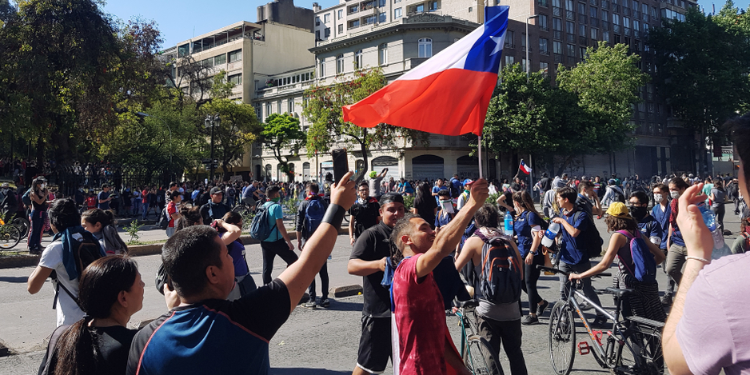
The protests began when the government announced a rise in the price of transport. What started as a student protest culminated in a march on the 1st of November in which no less than one million people participated. Expat.com talks to an expat in Chile.
Mid-October. The Chilean government announces a rise in transport fares during peak hours in Chile's capital city, Santiago. The announcement prompts disagreement amongst the Chilean population. Students take to the streets. While the protests were peaceful at first, the violence quickly escalates. Better opportunities, better access to education and healthcare and reduced austerity is what the protesters are asking for. Two weeks later, 19 protesters have been killed and over 3, 000 have been arrested.
Today in Chile, things are starting to get back to normal. Slowly but steadily. “We have all heard the message”, Sebastian Pinera tweeted after more than a million Chileans took to the streets on the 1st of November, standing together to ask for more. While the country is still recovering from one of the most significant protests of its history, we wanted to speak to expats on ground to gauge the severity of the events and to understand how they are feeling. However, it was very difficult to get to expatriates living in Santiago. We, however, managed to speak to Alberto, a portuguese expat. He lives in Arica, in the North of Chile.
When and why did you settle in Chile?
I arrived in Chile in 2014. I was freshly retired then and I had the choice between Asia and South America. As I could never visit Chile during my travels in the past, and because I already knew the language, the choice was an easy one. I stayed in Santiago for four months, exploring the city and then started travelling across Chile. And I fell in love with a little town in the North of the country. A few miles away was another town which was the host to international surf competitions as well as a yearly carnival- and this is how I decided to settle in Arica with my partner. I have been here for five years!
You are not in Santiago, then. Has the unrest spread outside of the capital city?
Not in Arica. While there are protests in several areas outside of Santiago, Arica has remained peaceful throughout the unrest. We do follow the events very closely through television reports, however.
How are things today in Chile?
A lot calmer than it was last week. It is now time to take stock of the damages caused to the public infrastructure, buildings, monuments, etc… The metro in Santiago has been set on fire, and a lot of big supermarkets and shops have been damaged vandalised. The state has estimated that it will cost around USD 300 millions to repair the 78 metro stations that have been damaged.
How do you feel after the protests?
At the beginning, the authorities reacted as if it was war, the armed forces were in the streets with their guns ready to shoot. My partner and myself were scared this might turn into war, indeed. But things quickly came back under control.
The fight for equality from the Chilean people will be very hard because the gap between the different social groups are way too wide. Pensions, healthcare, education and most importantly, wages… all of these need to be tackled. When you think that the minimum wage in the country is EUR 360 while the minimum rent is EUR 180… The cost of education and healthcare are huge. It is going to be difficult to fight for better social justice in Chile.
How do you think expats in Chile after the protests?
I don't think they are scared or worried because the violence is not directed towards them- the anger is directed at the government. This crisis has been brewing for more than 30 years.



















